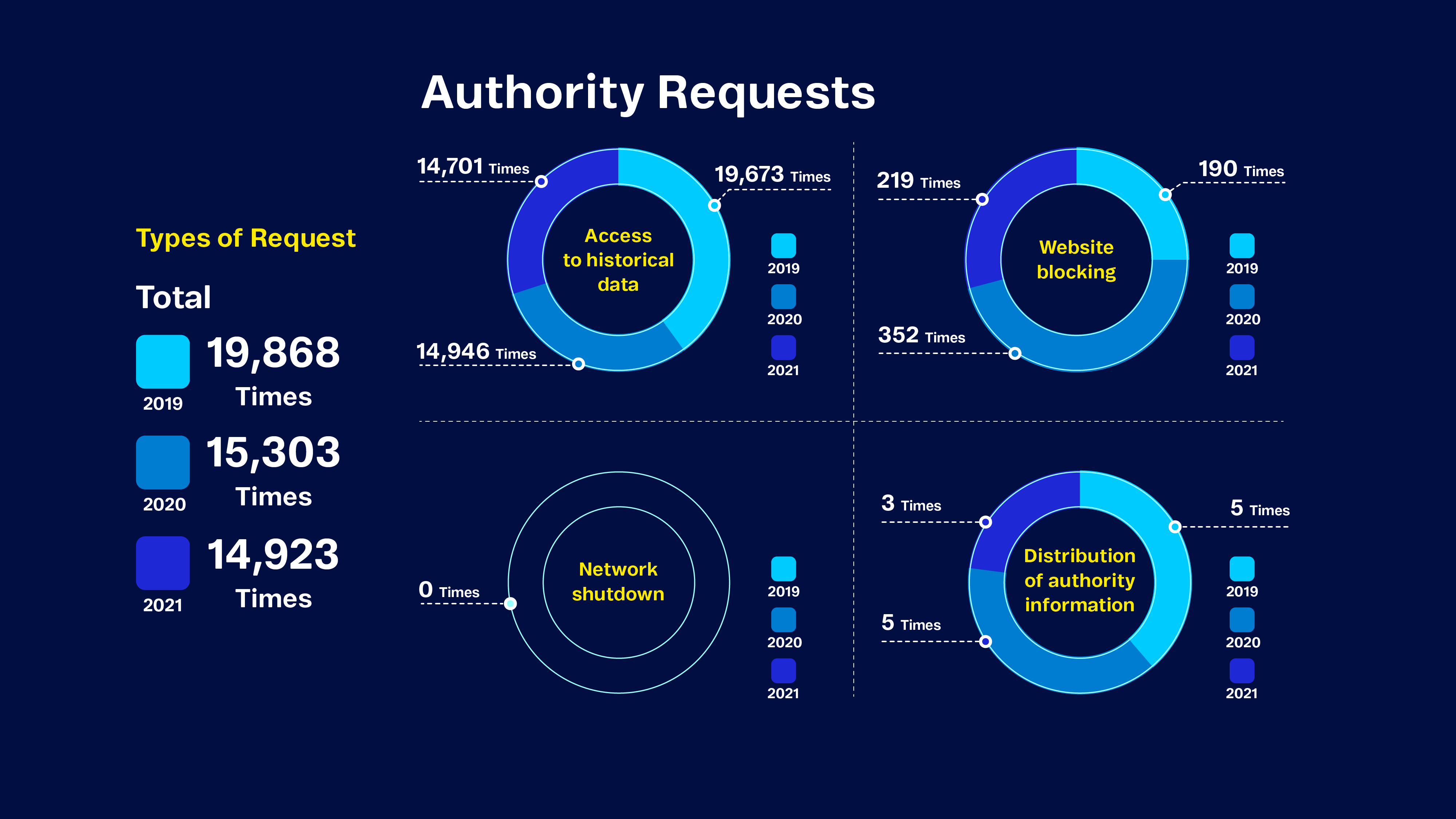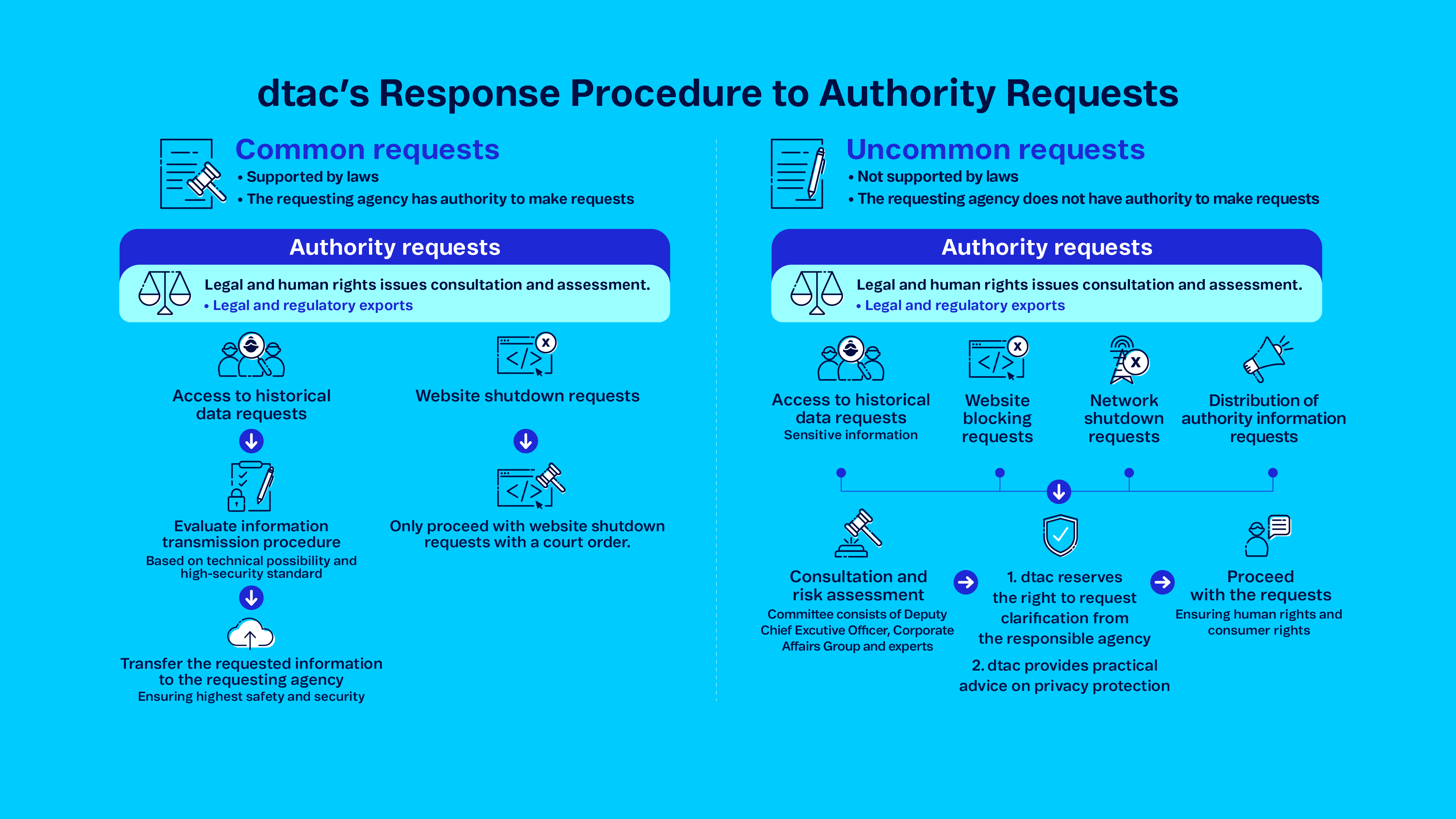Why Human Rights Matter to dtac
Human Rights: the Foundation of Responsible Business
Underpinning its respect for human rights, dtac has developed a responsible business framework, drawing on international standards including the UN Universal Declaration of Human Rights and the ILO Core Conventions.
We also conduct human rights due diligence with internal and external stakeholders to ensure that we can have a positive impact on the economy, society, and environment.
dtac adheres to the guidelines of the United Nations Guiding Principles on Business and Human Rights (UNGPs), in which we are expected to “know and show” that we do not infringe on human rights through our business operations and relationships.
This requires a process of human rights due diligence to identify, prevent, mitigate, and account for how we address human rights impacts. This process includes:
- Assessing actual and potential human rights impacts
- Acting upon the findings
- Tracking effectiveness over time
- Communicating how impacts are identified and addressed
dtac conducts human rights due diligence every two years with internal and external stakeholders as part of our Sustainability Policy.
In 2022, dtac worked with Sal Forest Company Limited to conduct human rights due diligence. The due diligence was conducted based on reports and studies about human rights challenges in the telecommunications industry worldwide as well as the assessment framework of Telenor Group, a major shareholder of dtac. The findings showed that, aside from human rights challenges that are unique to the country, such as authority requests, the overall situation in Thailand is mostly in line with global trends.
In assessing the level of human rights risk, the primary focus was on issues that are difficult to be remedied, including those related to health and safety that may lead to workplace fatalities. These potential risks were mapped with risks in dtac’s business operations, based on data obtained from stakeholder interviews, policy guidelines, corporate practices, etc.
In many cases, mobile operators are obliged to comply with authority requests that may impact human rights and privacy, such as personal information requests, blocking access to content, and network shutdowns in certain areas.
dtac has established strict guidelines for handling authority requests based on Thai law, universal human rights principles, and the principle of necessity and proportionality.
In the past few years, dtac has increased transparency in its work processes by publishing an annual authority request disclosure report.




